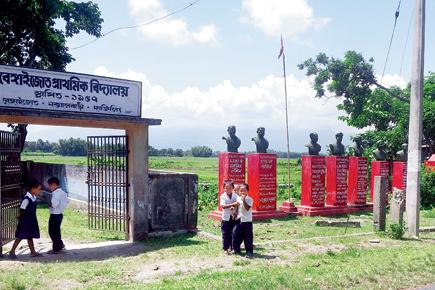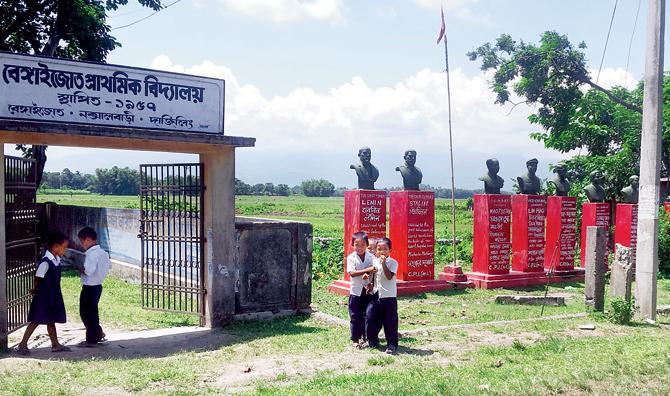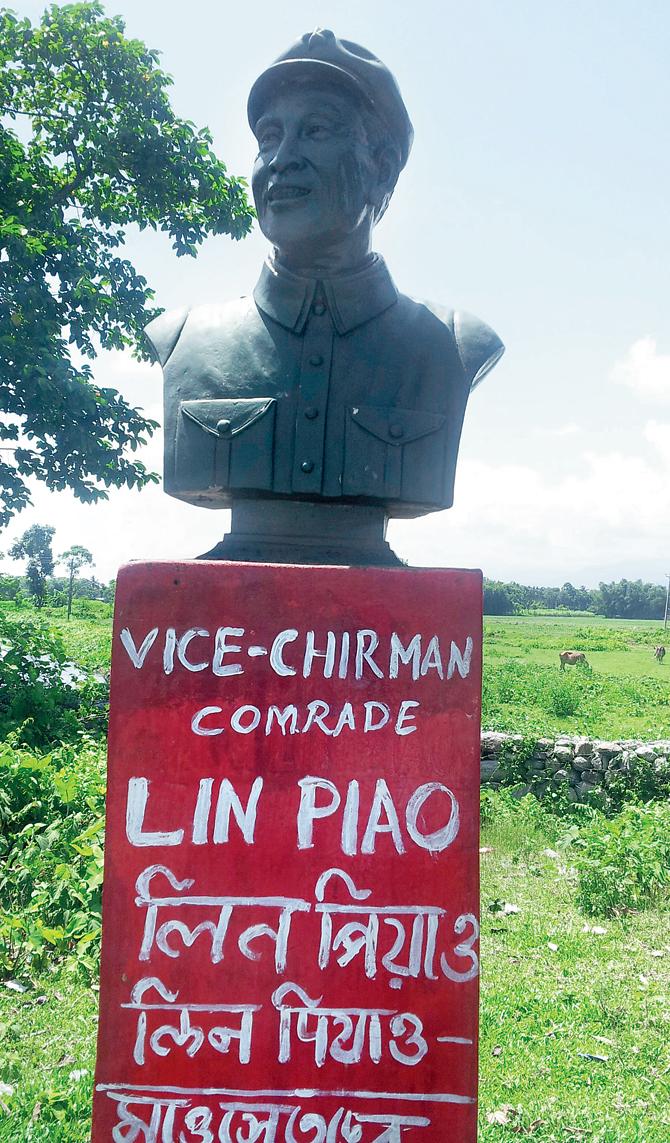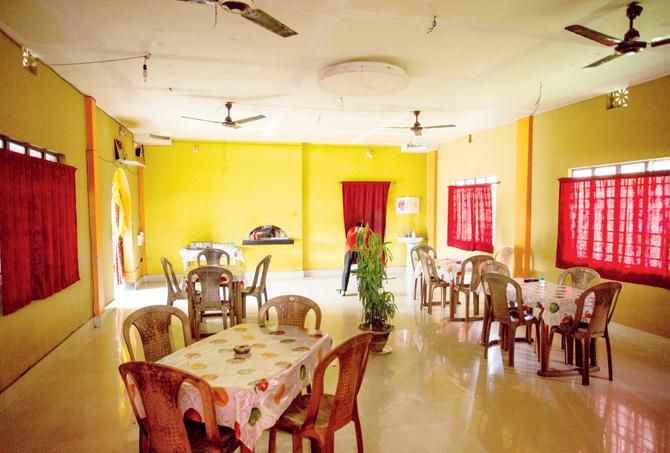The incubator of India’s class struggle gets its first bar. A night out in Naxalbari

Close to the bar, kids from a nearby school are often seeing playing I-Spy around busts of Communist leaders
When Naxalbari, a West Bengal town surrounded by sun-kissed tea gardens famous as home to Darjeeling tea, got its first resto-bar earlier this year, its existence was jarring in what was considered the incubator of India’s class struggle.
ADVERTISEMENT

Close to the bar, kids from a nearby school are often seeing playing I-Spy around busts of Communist leaders
But those frequenting the 70-seater Silver Sign do not remember the violent revolution that kicked off on the afternoon of May 24, 1967. Actually, they do not care. For them, 48 years is a long time to recollect.
The customers, mostly men, are busy on their mobile handsets as stewards bring them plates of fried chicken legs wrapped in silver foil with baked potato, sliced onions and mint chutney.
The liquor menu ranges from Vat 69 popularised by Bollywood villains in the ’70s to strong Carlsberg beer served in glasses offered free as promotional material during the last World Cup by the Indian subsidiary of the Copenhagen-based company.

“We discuss business and sports, and a bit of politics,” prioritises Ashok Singha, a young manager at a rice mill that sits near a barren stretch of grazing land, now home to busts of local Naxals like Charu Mazumder, Soviet leaders Lenin and Stalin and Chinese Civil War hero Lin Piao. In the afternoons, children from a school next door play I-Spy around the busts fixed on elevated red cement stands.
It was here that tribal tea garden workers troubled by the feudal landholding system and crippling taxes, inspired by suave Marxist ideologues like Mazumder, organised sit-in protests on farmlands. Ironically, the Communist Party of India radical belonged to the landed class, but inspired by Mao Zedong’s philosophy, Mazumder targeted the landlords and government. During the May 24 protest, an arrow shot from a crowd of farmers killed a police inspector, provoking firing that left 11 dead, among them eight women and two infants.

Silver Sign offers alcohol, bar eats and loud musician
Naxalites killed landlords and villagers refused to co-operate with the police, creating “liberated zones” where villagers and guerilla agents mixed seamlessly, perplexing the police.
“A generation has changed, and so have people in Naxalbari,” says Swapan Bagh, a real estate promoter who is busy with setting up what will be Naxalbari’s first mini-shopping mall. Bagh says revolution is a state of mind for those visiting the town.

Tea garden worker Sera Oraon was 10 when violence erupted. She remembers nothing
“Visitors bring Cappuccino in their flasks, throw a glance at busts of Marxist leaders and talk of 1967,” he laughs.
Sanjit Poddar, who owns Silver Sign, claims jobs are important, and little else. His customers rarely discuss politics. “Trade union leaders are a dying breed in India anyway. The workers have to fend for themselves.”
Last year, tea garden workers in Dooars in North Bengal killed a manager in a fit of rage but there was little reaction to the incident in Naxalbari. “Several of us here watched the episode unfold on television and read about it in newspapers. But there was no protest held in solidarity with the Dooars workers,” says Binoy Sadhu Kha, a regular at the bar.
Narayan Sanyal, a 71-year-old, who retired as a teacher, said he remembers how Mazumder pushed workers to demand better facilities from landlords. “The current generation is busy with their mobiles but it would be wrong to presume that his ideology died with him,” says Sanyal, in obvious reference to strategies used by the current crop of Maoist guerrillas in Chattisgarh, Dantewada, Orissa and Jharkhand.
Sanyal remembers how the Naxalbari movement spread across India, drawing in bright students enamoured by the romance of revolution.
“Many were killed, many disappeared after being arrested. Those were nightmarish days,” he says. Mazumder was captured in July 1972 and died in a Calcutta jail 10 days later.
Amit Bose, 68, a retired professor from Kolkata, who had joined the movement in the early ’70s, believes Mazumder was killed in custody. “He meant to liquidate the political, social and economic authority of the class enemy,” says Bose. The divide between the rich and poor is growing wider, he says, and Indian workers lack rights and leaders to support them.
At a recent labour conference in Delhi, trade union representatives returned empty-handed after a much hyped meeting with Narendra Modi. The PM gave them a patient hearing but did not promise that their demands for higher salaries would be met, or that contract labour would be abolished. Probably, it was a powerful leader the workers lacked to espouse their cause.
The evening crowds have filled the bar. Trending high on their WhatsApp message stream is India’s latest offering, The Kabaddi League, an earthy game now remodeled with cash and Bollywood endorsements.
Revolution is, actually, a state of the mind.
 Subscribe today by clicking the link and stay updated with the latest news!" Click here!
Subscribe today by clicking the link and stay updated with the latest news!" Click here!






